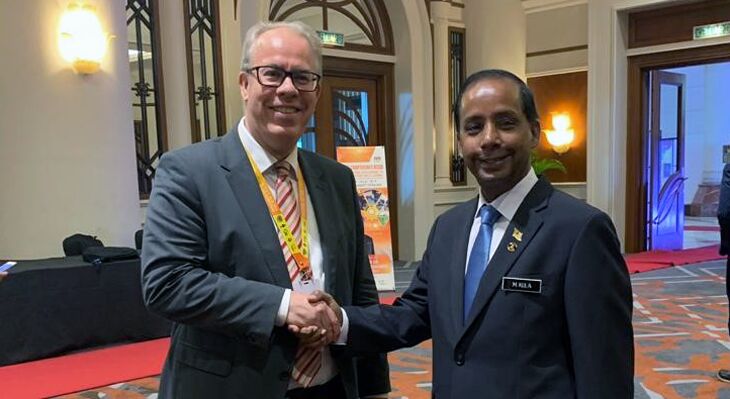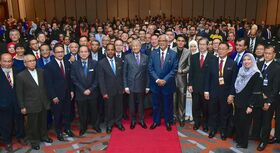Malaysia: GOVET provides information on dual VET
The aim in Malaysia is for vocational education and training to be a “game changer” by taking on a crucial role to drive forward the development of the national economy. The country’s government is currently working on a comprehensive reform of the vocational education and training system.

Malaysia is striving to bring about substantial changes in its VET system. The country’s objectives are to achieve a significant increase in the number of people completing training, to integrate trade and industry more closely, and to react to the challenges of Industry 4.0.
The Malaysian Ministry of Human Resources hosted a Vocational Education and Training Conference at the seat of government in Putrajaya on 8 and 9 July. The event was attended by around 400 participants from the field of public administration and the private sector economy who convened to discuss the necessary reform steps. The ministry was also keen to hear the views of VET experts from other countries, and representatives from Japan, South Korea and Germany all contributed. GOVET’s Deputy Head Peter Rechmann, who had been invited to take part by the Malaysian Government, spoke on the first day of the conference to explain the tasks and cooperation activities undertaken by the different stakeholders in dual vocational education and training in Germany. He also elaborated on the work of the committees via which the dual system is governed and implemented. Various representatives of Malaysian trade and industry organisations approached GOVET following this presentation in order to obtain further information and ideas for the current reform process. Webinars and return visits from the Malaysian side are also in the pipeline.

The main focus of the second day of the conference was an appearance by the Malaysian Prime Minister Mahathir bin Mohamad, who encouraged the participants to redouble their commitment to vocational education and training and also took part in a questions and answers session. He sent out a strong signal for the future by stating that vocational education and training would play a major part in Malaysia’s development. The press, TV and social media were all on hand and were quick to produce detailed reports on the event. Germany has been heavily involved in VET cooperation with Malaysia in the past as part of its international development work. Within the region, Malaysia itself has now emerged as a net donor of aid. German concepts such as training regulations and dual learning have been integrated into Malaysian vocational education and training. In some cases, these aspects are implemented by German training providers operating at a local level. These providers continue to be held in high esteem, and numerous decision makers in the area of government administration have been on fact-finding missions to Germany within the scope of various programmes.